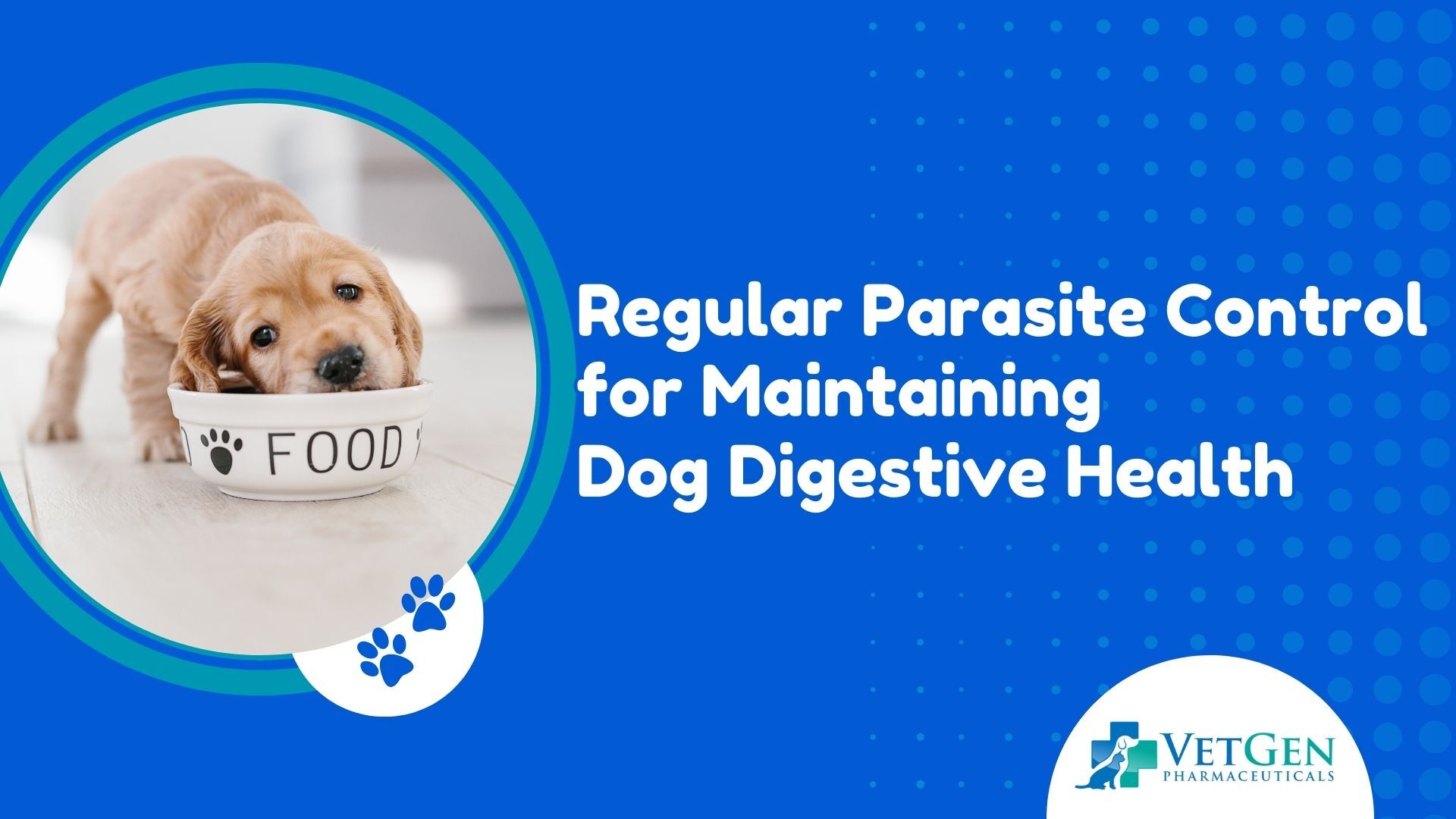The responsibility of every dog owner is to ensure their furry friend is happy and in optimum health. Parasitic infection is one of the most common health issues that affect dogs. These organisms usually feed on and within them.
If you want to protect your dog, you should know that protecting them from parasites is one of the ways to do that. Many parasites can infect the digestive system of dogs of all breeds. These parasites can affect their energy and cause minor to severe damage to their digestive health.
Are there ways to protect your dog from these parasites? Of course! There are certain measures you can take as a pet parent to ensure the protection and safety of your dog.
In this post, we are going to educate you and explain everything you should know about controlling and preventing parasites to maintain optimal dog digestive health.
What are Gastrointestinal Parasites in Dogs?
Gastrointestinal Parasites are organisms that feed on dogs and infect their digestive system. They can be classified into two types: ectoparasite and endoparasite. Ectoparasites feed on dogs while endoparasites feed from within.
Dogs can be infected with these parasites through many ways. It can be through the consumption of raw meat, veggies, or fruits. They can also be acquired from infected water, soil, and bodies of other animals.
Parasites are dangerous and can cause harm to a dog’s digestive health. Depending on the kind of parasite your dog is infected with, it can lead to serious conditions if left undiagnosed and untreated.
Temperature Adaptation and Metabolism
A groundbreaking study on Inuit sled dogs, published in the Journal of Comparative Physiology B, revealed fascinating insights into canine temperature adaptation and metabolism.
The research found that these dogs have an extremely wide thermoneutral zone, extending down to -25°C. This suggests that many dogs may be more adaptable to temperature changes than we previously thought.
Common Parasites That Can Affect the Digestive Health of Dogs
There are lots of parasites that your dog can be infected with. However, some of the most common ones are:
Roundworms: This is a common intestinal parasite that mostly affects puppies. Puppies can get infected by consuming contaminated feces or soil. Their mothers can also pass it on through breastfeeding. Toxocara canis as they can also be called can cause intestinal obstruction, stunted growth, digestive issues, and a large belly.
Tapeworms: Dogs can be infected with tapeworms when they feed on infected animals like rodents or fleas. It can cause anal irritation, poor digestion, irritability, and a dull coat.
Whipworms: This parasite attaches themselves to the wall of the large intestine. They can be found inside the colon and cecum and also cause inflammation. Whipworm can lead to extreme weight loss and diarrhea. Dogs can get infected with whipworms by ingesting contaminated soils or foreign objects.
Hookworms: These parasites can be acquired through larvae penetration, contact with the skin, or consumption. They attach to the lining of the intestines and feed on the blood. It can lead to anemia, weight loss, and loss of energy if left untreated.
Giardia: This parasite affects dog’s small intestine. They can get infected through contaminated water. Untreated Giardia can lead to loss of appetite, vomiting, and weight loss.
Coccida: This is another gastrointestinal parasite that can affect dogs. They are usually infected by eating contaminated objects like soil or feces. It can lead to dehydration, weight loss, and extreme loss of energy.
Symptoms of Parasites in Dogs
There are certain signs and symptoms that your dog will show if they have been infected with parasites. Recognizing one or more of these symptoms below can help your dog get the help they need. They include:
- Dull coat
- Loss of appetite
- Pot-belly appearance
- Diarrhea
- Vomiting
- Loss of energy
Treatment of Intestinal Parasites in Dogs
The treatment of parasite in dogs is usually dependent on two things. The type of parasite your dog is infected with and the severity of the infection. If you start seeing signs that your dog might be struggling with parasites, the first thing you should do is take them in for assessment.
The veterinarian will perform an assessment to find out the parasite troubling your dog’s digestive health. They can do this with a fecal exam, blood test, ultrasound, or endoscopy/colonoscopy. After diagnosing the parasite, they will prescribe medication.
In lots of cases, they prescribe dewormers, probiotics, or antibiotics. They might also recommend diet changes and encourage a cleaner lifestyle for your dog. Whichever case it may be, it will be in your dog’s interest to listen to the vet. Their recommendation will protect your dog from further parasitic infection.
Benefits of Parasite Prevention for Your Dog
You should not have to wait until your dog is infected before you take them to a vet for deworming. You can take them in frequently to ensure they are protected from these parasites. Just like humans, it is advisable to get dogs dewormed regularly. How regular you deworm them will also depend on their age.
Some of the benefits of preventing parasitic infection are:
- To properly maintain dog digestive health
- To reduce stress and manage their energy levels
- To improve the appearance of their skin and coat
- To reduce the risk of illness and disease
- To ensure your dog remains healthy and happy for a very long time.
Conclusion
In conclusion, regular parasite control is important and necessary to maintaining dog digestive health. As a pet parent, you should know that parasitic infection is a common health issues that affect dogs. You need to do everything possible to prevent them from getting infected through their choice of diet and regular medical check-ups.
Frequently Asked Questions
Can you deworm a dog too much?
Yes! As much as deworming is great to ensure your dog is healthy, doing it too much can also have its effects. So, you should follow your vet’s instructions when it comes to getting rid of parasites from your dog.
What is the safest parasite prevention for an optimal dog digestive health?
There are certain things you can do to prevent your dog from parasite invasion. First, you need to ensure they consume meals and supplements that can help them. Do not let them eat uncooked meals. Most importantly, take them to a veterinarian regularly for deworming.
How often should I give my dog parasite medication?
This often depends on the age of the dog in question. If your dog is young and about 12 weeks old, they should be dewormed every 2 weeks. After, they can be dewormed monthly until they are 6 months old. If your dog has a higher risk of contracting parasites, you need to deworm them frequently. However, you should always speak with your vet.
Can probiotics get rid of parasites in dogs?
Yes. Some probiotics are designed specifically for intestinal parasites in dogs. You will need a medical recommendation to find the one that will help your dog eliminate parasites.
What kills parasite in dogs naturally?
Fruits and vegetables that are rich in fiber can help eliminate parasites naturally in your dog. If you want to kill worms naturally, you can feed your dog papaya, banana, carrot, coconut, and pumpkin. These fruits and veggies are nutrient-packed and will ensure their digestive health is in top shape.






